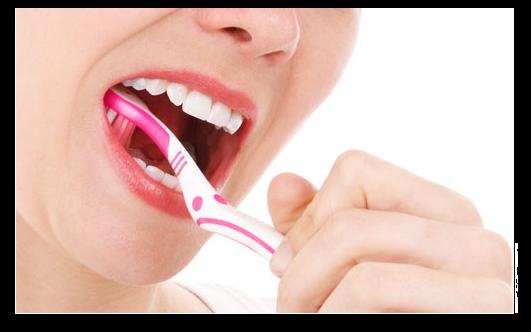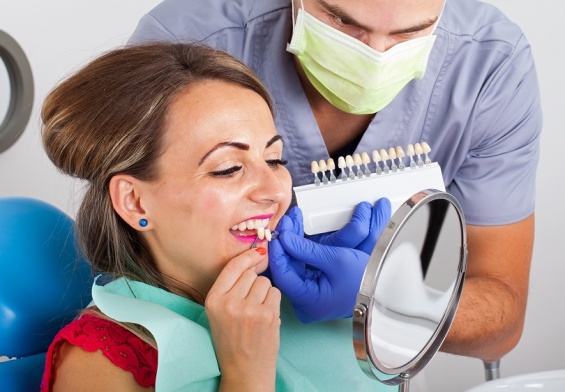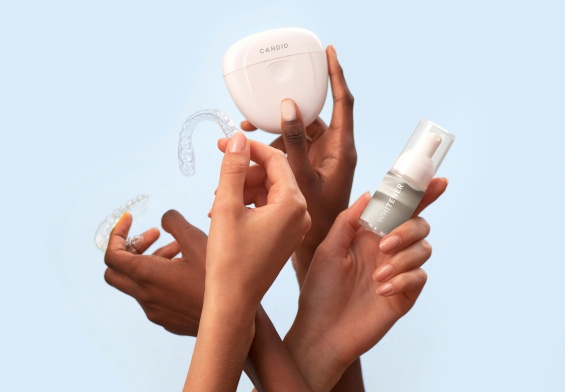
There was a time when your smile was the first thing people noticed about you. And you know what? That hasn’t changed at all! In a recent poll, more than half of the people surveyed put smile at the top of the list as the first thing they notice when they meet someone. Of course, that also means that the lack of smile is also the first thing they notice. If you’re not smiling as much as you should, your dental hygiene routine may be to blame. Good dental hygiene is a must, especially in today’s highly social world. You never know when you’ll be walking around and suddenly run into an old high school buddy, a future business associate, or the love of your life! But that’s only part of the reason for maintaining a good dental hygiene routine. Recent studies have shown a link between oral health and disease, including heart disease and diabetes. That’s why it’s vital to adopt a regular dental hygiene routine early on and carry it through every stage of life.
Dental hygiene for babies
Teeth are important not only to chewing and beautiful smiles, but also for clear speech. That means parents need to start early with the proper dental hygiene routine for baby. Baby teeth typically take about two years to come in completely. In the meantime, it’s important to begin proper care even before you see baby’s first tooth emerging.
To care for your baby’s mouth even before she gets teeth, moisten a fresh piece of gauze with lukewarm water and gently wipe her gums in order to remove bacteria. Do this after every feeding as well as right before bed. (Bonus, this is a good time to bond with your baby by turning it into a little game that allows her to play along and interact with you.) When she gets her first tooth, begin using a toothbrush that contains very soft bristles. (Some baby stores even carry toothbrushes specially made for little ones.) Wet the toothbrush and add a small amount of toothpaste without fluoride at around age one. When she’s gained the necessary motor skills, that’s when you can allow her to begin holding the toothbrush and brushing her own teeth. Be sure to monitor her brushing activities until she’s about five.
Dental hygiene for children
Kids are a different story when it comes to a dental hygiene regimen. Because they bore easily, it’s always good to keep them occupied while brushing by making it fun for them. Manufacturers of dental health products have really stepped up their game when it comes to fun stuff for kids’ dental health routines. Many top family dentists recommend that you take your child to the store and let him pick out his own toothbrush from the many fun and whimsical options available on the market today. You can even allow him to choose his toothpaste himself. Be sure he chooses one that contains fluoride and is recommended by the American Dental Association. If you’re not sure about some of the products made especially for kids, don’t hesitate to ask your family dentist for assistance on choosing the right ones.
Diet is also an extremely important factor in building strong, healthy teeth and maintaining them throughout life. Limit sweets and starchy foods in your child’s diet and encourage regular consumption of crunchy raw vegetables that help to clean teeth naturally. Teach your child early to brush twice a day and floss at least once a day. Finally, be sure to include routine visits to your family dentist twice a year. If you start your child on a healthy dental hygiene routine, she will likely carry it all the way into adulthood and beyond.
Dental hygiene for adults
If you’re someone who’s maintained a good oral hygiene regimen throughout your childhood, chances are good that you’ll continue that routine throughout your adult years. However, if you’ve been a bit lax with your oral health in the past, now is the time to get started on your road to good dental hygiene. Just as when you were a kid, a good oral hygiene routine when you’re all grown up means brushing twice daily and flossing at least once daily. Mouthwash is a good addition in the adult years because of its ability to kill bacteria besides freshening breath. Truth be told, when many of us reach our adult years, we don’t always eat as healthy a diet as we did when our parents were supervising us. That’s why it’s vital throughout adulthood to be a stickler for maintaining a good oral hygiene routine. Poor diets that include too many sweets and other processed foods are bad for teeth. Couple that with a poor oral hygiene routine, and you’ve got a recipe for dental disaster. Try limiting these foods and adding in some crunchy raw vegetables. And, by all means, don’t stop the dental visits just because you’re grown. Adults need twice-yearly dental visits just as much as children, especially since recent studies have shown links between oral health and overall health.
Dental hygiene for seniors
Of course, nobody should let up on a good dental hygiene routine just because they’ve reached their golden years. In fact, since many medications cause dry mouth, seniors are especially susceptible to infections due to lack of saliva that can cause bacteria buildup. At this stage, people need to continue brushing at least twice a day and flossing routinely. Mouthwash can also help in a senior’s dental hygiene routine because it hydrates the mouth, preventing gum disease that can lead to tooth loss from decaying teeth. And nothing is more important than twice-yearly visits to your family dentist. Seniors who have dentures or dental implants need to maintain dental hygiene as directed by their dentists.
Good dental hygiene isn’t something that just happens. It’s a choice, and it needs to be maintained on a regular basis. The good news is that a good dental hygiene regimen is as easy as twice-daily brushing, daily flossing, and regular visits to your family dentist. Just a few minutes a day is all it takes to maintain oral health well into your golden years. And there aren’t too many things in this life you can say that about!



